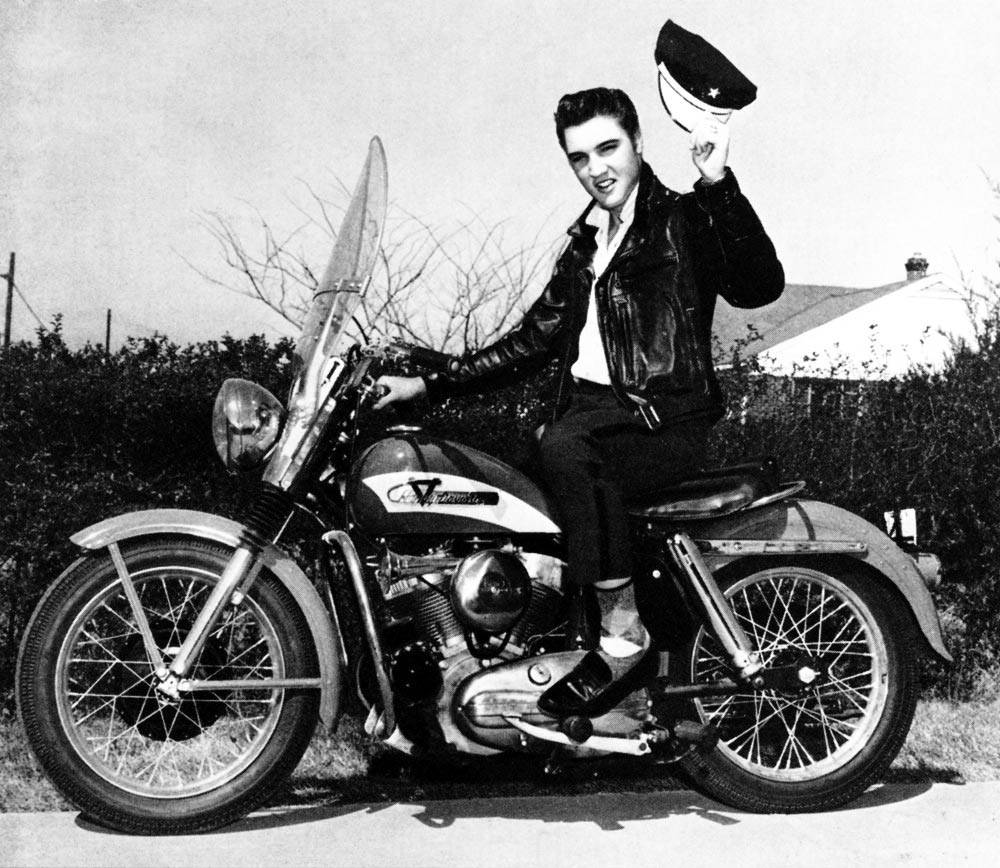Old-Time Rock ‘n’ Roll:
How The 1980s Embraced 1950s and 1960s Oldies Music
Elvis

Photo: "File:1956-elvis-presley-harley-davidson.jpg" by http://www.classic-motorcycle-build.com is licensed under CC0 1.0
At the beginning of his career, rock ‘n’ roll legend Elvis Presley threatened mainstream America’s values by singing and gyrating to the devil’s music.
Right wingers felt he promoted sex and African American music. Elvis had many highs and lows throughout his career, unfortunately becoming addicted to prescription medicine. Although rock ‘n’ roll’s first megastar died in 1977, fans continued to worship Elvis through the eighties. They couldn’t accept his death and viewed Presley as a god, resurrected from the dead. People wanted to believe he still lived. Reports of Elvis sightings became frequent during the late 1980s, with Kalamazoo, Michigan as the center of Elvis sightings. A reporter said she approached Elvis who was surrounded by a security detail. Another person claimed she saw him multiple times, including at a Burger King drive-thru. Tabloids frequently reported sightings. An Elvis Sighting Society, established in 1989, recorded all sightings.
Elvis sightings took place on many stages worldwide as Elvis impersonators greatly increased during the decade. Seeing an Elvis impersonator gave boomers a chance for nostalgia and fun. Elvis parties, where attendees dressed up in Elvis attire, gave people an opportunity to laugh at themselves.
Eighties celebrities jumped on the Elvis bandwagon. In his Delirious stand-up show, Eddie Murphy pokes fun at the King of Rock and Roll,
as well as the Godfather of Soul
James Brown. Other comedians followed Murphy’s lead and gave their audience a laugh at the King’s expense. Roseanne, the popular late 1980s sitcom, made references to Elvis sightings and actor John Goodman occasionally impersonated Presley. Singer Paul Simon respected Elvis. He named his big 1980s album and title track Graceland as a salute to Elvis.
During his life, Elvis made millions, but spent heavily, and was duped by his manager Colonel Parker and RCA Records of earnings. The Elvis Presley Trust was only worth over a million dollars when he passed. A lawsuit in the early eighties between Parker and the Trust put the Trust’s finances into dire straits. Graceland had to be opened to the public in order for the Trust to make money. Author Ted Harrison holds the opinion that if Graceland wasn’t opened to the public, there wouldn’t be a mecca for Elvis fans to visit. Opening Graceland to the public in 1982 started the branding of Elvis. Over three thousand people visited the first day. The Trust formed Elvis Presley Enterprises as its business entity and took control of Elvis’s image, thus taking control of merchandising. By 1993, Elvis Presley Enterprises had a reported value of over $100 million. Elvis memorabilia had become a big business.